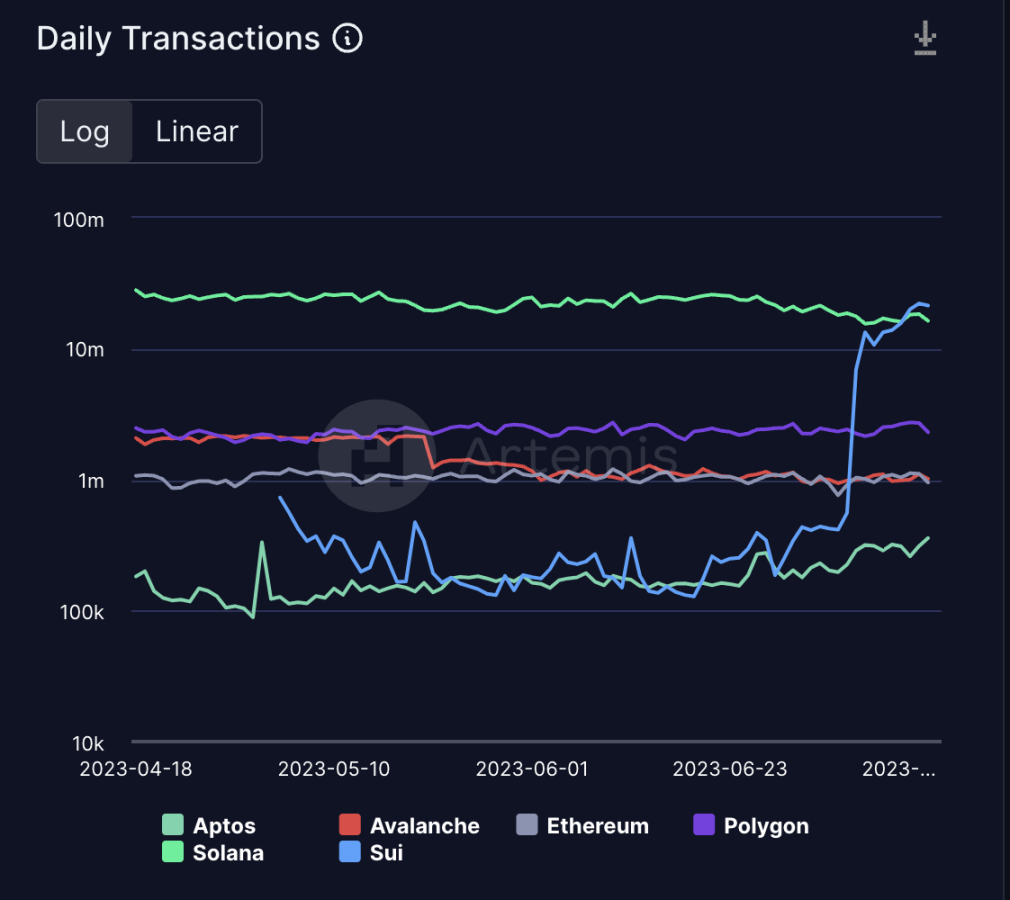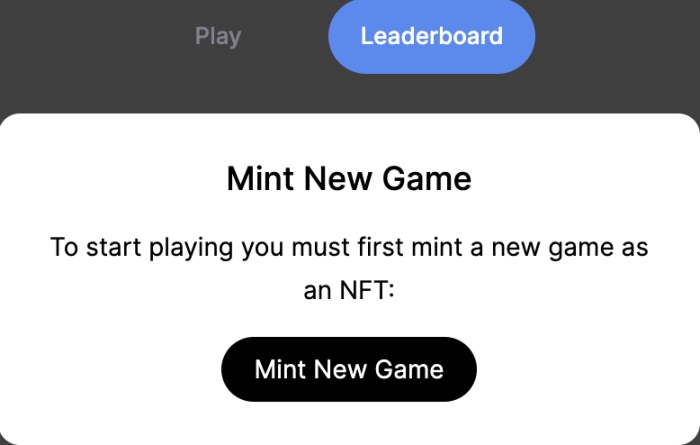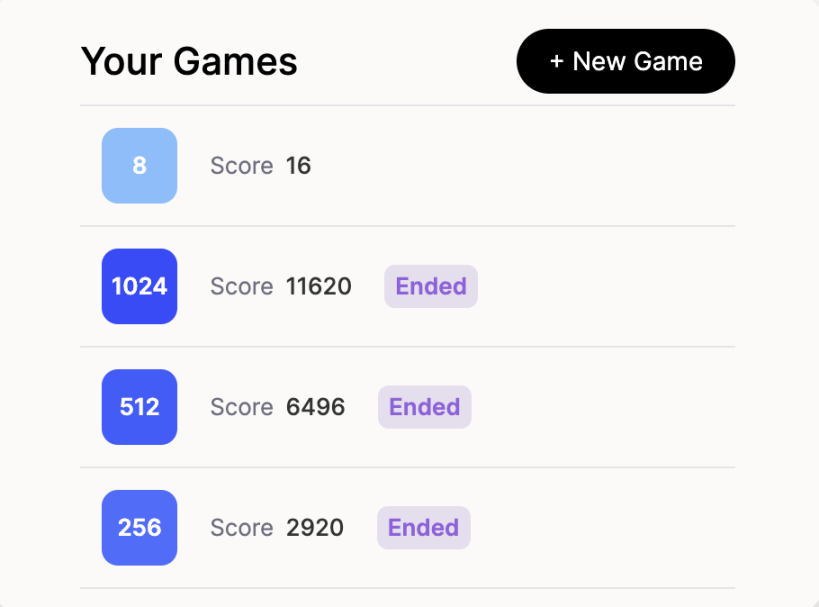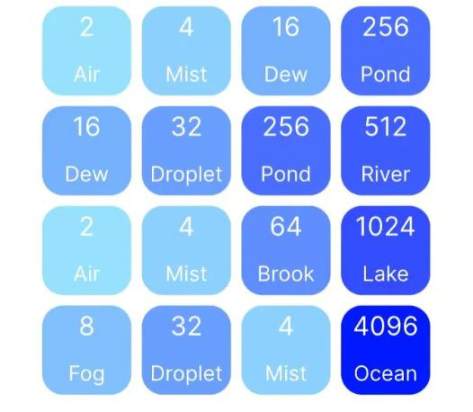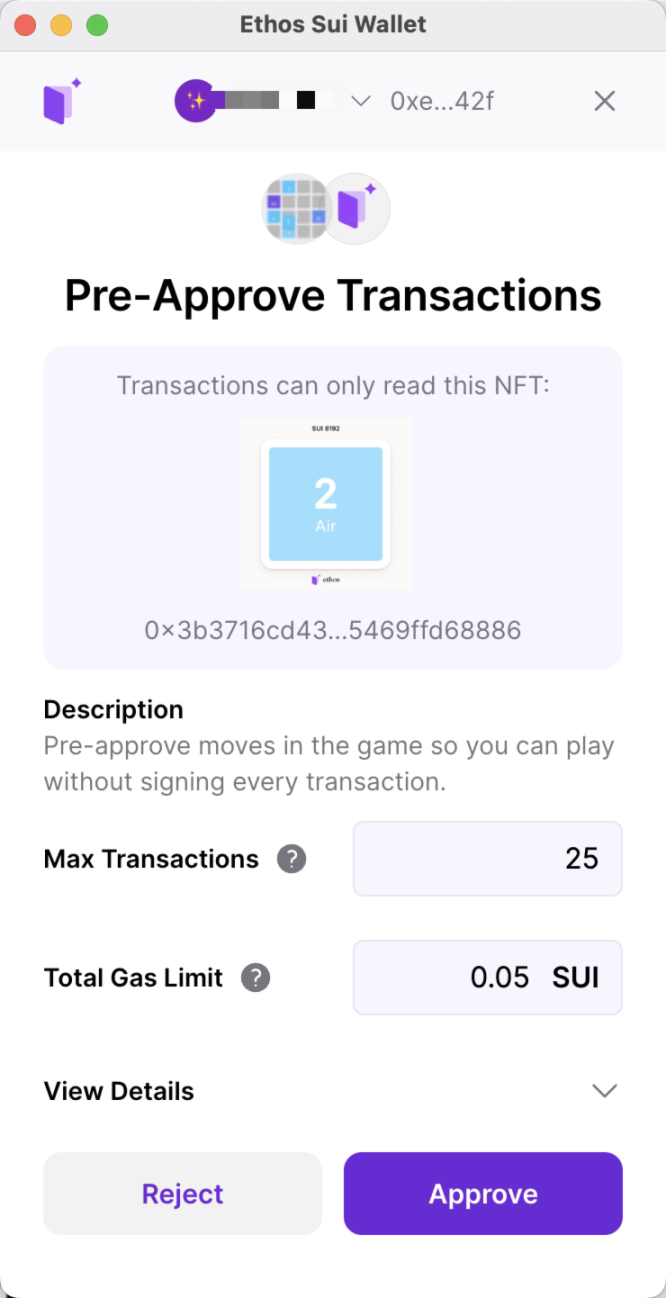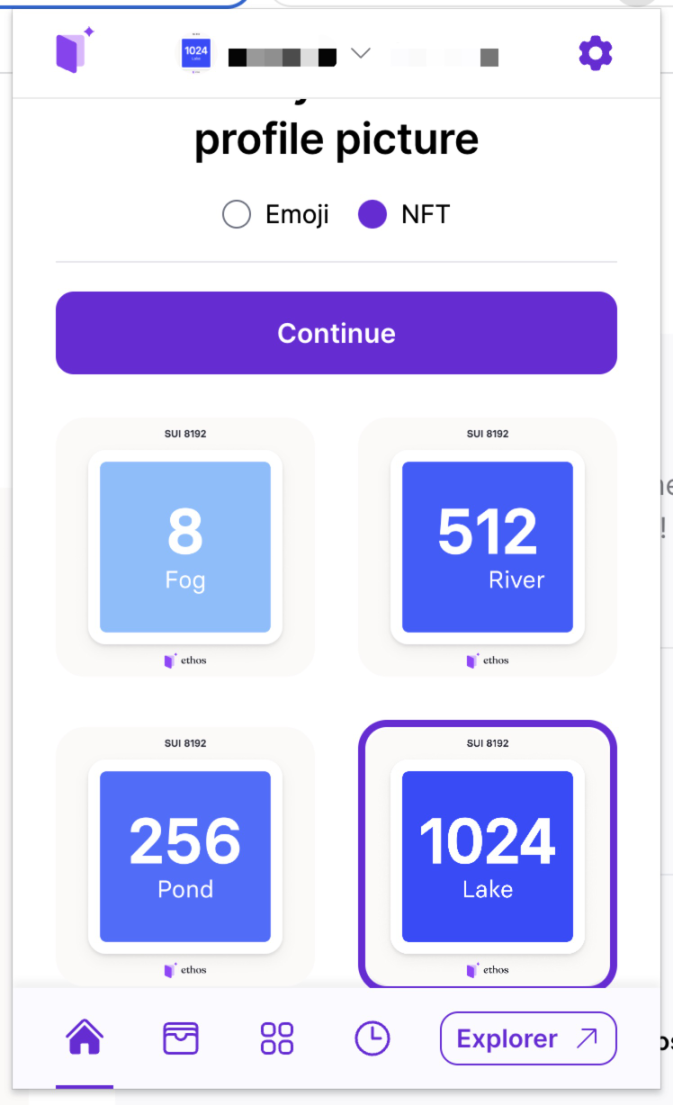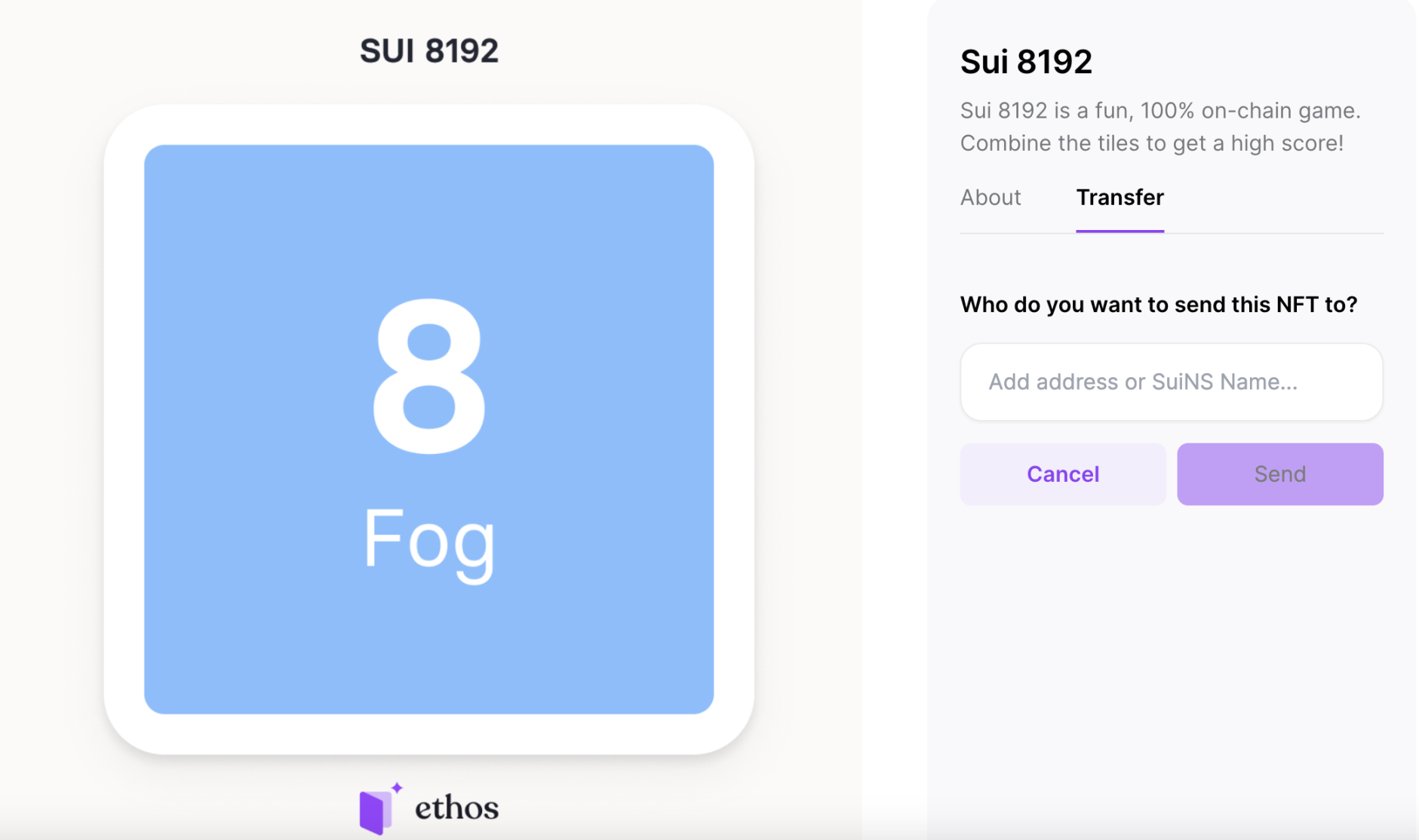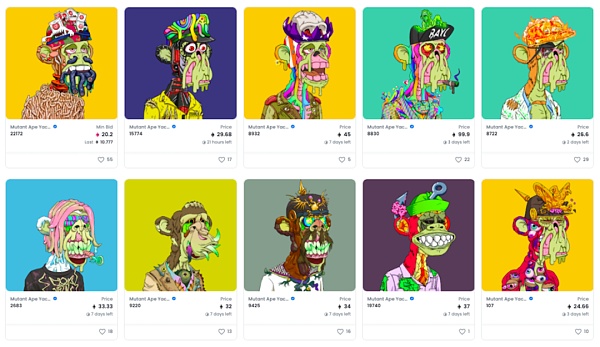The daily transaction volume has exceeded 20 million. Is the blockchain game Sui 8192 really that fun?
Is the blockchain game Sui 8192 really fun with a daily transaction volume exceeding 20 million?Editor’s Note: LianGuaiNews July 17th news, thanks to the chain game Sui 8192, the daily transaction volume of Sui Network has exceeded 20 million transactions. This article was first released on July 12, 2023 and will introduce the characteristics and gameplay of the chain game Sui 8192.
Author: Peng SUN, Foresight News
I believe most people have played the addictive number puzzle game 2048. It doesn’t have overly complicated game design, but it consumes a lot of your time. Just through numbers, it can make you never give up and fight to the end. This type of game is not uncommon, from Minesweeper, Tetris, to Mahjong and Match-3, every generation has various new forms of puzzle games.
The Sui ecosystem’s self-hosted wallet Ethos has also developed a 2048-like number puzzle game called Sui 8192 based on the Move language and the Sui blockchain. This is a full-chain game, where all logic and rules are automatically executed based on smart contract code, except for the front-end user interface. Compared to large-scale full-chain games like Dark Forest, Isaac, and OPCraft, Sui 8192 does not propose as many grand ideas and narratives. It is just an ideal small-scale experiment without complex technologies like MUD engines, without a focus on speculative trading in the DeFi space, but with low costs and a game experience that is enough to attract a large number of active users.
- Launching a coin without financing in blockchain entrepreneurship, pay attention to these three points
- Who is Arkham? A free Nansen exploring tokenized business models.
- CZ Binance’s Six-Year Anniversary Handwritten Letter Defending the Right Thing, Even if It Means Going to Court
Sui 8192: A Game is an NFT
The Sui 8192 smart contract is written in the Move language and is very simple, consisting of three parts: Game, Game Board, and Leaderboard, covering aspects such as block movement, game status input, game logic, and real-time score ranking.
In simple terms, each game of Sui 8192 requires the generation of an NFT, and each NFT represents a game.
In terms of gameplay, Sui 8192 is almost identical to 2048 in terms of logic. You only need to slide the blocks using the up, down, left, and right keys on the keyboard. If two blocks with the same number collide, they will merge into a new block with a number twice the original. These numbers start from 2, and the ultimate goal is to have a block with a number of 8192 (2 to the power of 13). The numbers and corresponding symbols for the blocks are as follows: Air (2), Dew (4), Fog (8), Dew (16), Droplet (32), Brook (64), Stream (128), Pond (256), River (512), Lake (1024), 2048, Ocean (4096), and 8192.
However, since all game logic and rules run on the chain, and NFTs are objects stored on the Sui network, every state change within the game (NFT) implies a change in the on-chain state. Therefore, each move of the block requires authorization from the user’s wallet. Currently, Sui 8192 can be accessed using Sui Wallet and Ethos Wallet. Although it claims that users without Web3 wallets can also experience Sui 8192 using the Ethos API, the API page is not provided.
Therefore, for users who use Web3 wallets, if they use Sui Wallet, they need to authorize each move of the block, which greatly affects the game experience. Ethos Wallet provides a pre-approval feature, where players can input the number of pre-approved transactions and the total upper limit of gas fees, eliminating the need to sign for each move. However, even with pre-approval, gas fees still need to be paid for each move.
Leave imagination to the community
Unlike previous GameFi models, fully on-chain games run all logic on the chain, rather than just putting assets on the chain. Fully on-chain games have the characteristics of decentralization, permissionless, trustlessness, transparency, collaboration, and composability.
Specifically for Sui 8192, it is not based on the X to Earn model of previous GameFi projects, but instead returns to focusing on the game experience itself, all based on the blockchain. This game does not involve speculation or trading, but it can still be immersive. In addition, by making the game itself an NFT, it adds NFT attributes to the game. For example, achieving a certain game state can be displayed as a PFP, symbolizing personal intelligence, abilities, wealth, and identity.
Furthermore, we have already seen Sui 8192 using NFTs for on-chain collaboration. For example, if a game of Sui 8192 is not yet finished, the NFT can be transferred to other Sui users to invite them to complete the game goal together. Even if the game is lost, the NFT can still be transferred.
Based on my limited experience, the minting and transaction fees for the NFTs with the numbers 256, 512, and 1024 only cost about 1.87 SUI, equivalent to 1.233 US dollars, or 8.8 yuan. This cost is already very low, so Sui 8192 is off to a good start.
However, there are still some issues with the existing model. For example, the prerequisite for playing is LianGuaiy, but now there is only LianGuaiy without any economic model. In other words, the problem is that this game has achieved the “ideal” that blockchain games have long pursued, which is to let users immerse themselves without the need for speculative profits. But why should users unilaterally pay for a puzzle game that can be played for free on Web2? Additionally, there is still some latency in moving blocks on Sui, and the game experience is not optimal like 2048.
Compared to 2048, blockchain has brought complete decentralization, permissionless, data sovereignty, and ownership to Sui 8192, but the value of ownership has not been fully realized. Currently, the utility of NFT is only potential “collaboration,” which is even a limited game. It has no pricing and no liquidity. In other words, “What is the use of owning this game? What does decentralization have to do with me? What about trusted data sources? I just want to play and pass the time.”
Full-chain games are a kind of “achievement on the chain.” The scarcity of this NFT lies in how close it is to the number 8192 and the amount of work that no one wants to repeat (for example, if you have obtained an unprecedented high score but suddenly lost, it would be time-consuming and exhausting to complete the previous work). Therefore, when everyone can start a new game at any time, only those NFTs with high scores and closer to 8192 have more value for exchange and transfer, and even their PFP and other social symbol meanings have more value. At the same time, returning to the essence of digital puzzle games – mathematical problems and enlightenment education for young people – the community can build Web3 educational products on them, so their value is not only scarcity but also incentive utility. At this time, community tokens can be issued based on the work and intelligence proof, such as the number of steps taken and the number on the blocks, for the created NFT.
Returning to Mr. Lu Xun’s quote, “In fact, there was no road on the ground; it was only formed by many people walking on it” (Lu Xun did say this). Sui 8192 is based on the high-performance Sui blockchain, but it is also extremely simple. Its greatest value lies in being permissionless and composable, and it is full of imaginative space. In the end, what kind of ecosystem and gameplay can be built depends on the community’s thinking and choices for this game.
We will continue to update Blocking; if you have any questions or suggestions, please contact us!
Was this article helpful?
93 out of 132 found this helpful
Related articles
- Millions of fans internet celebrity’s “textbook-like rights protection” after being falsely accused of pornography. Can blockchain solve the problem of online violence?
- Full text: US announces first criminal case involving attack on DEX smart contract.
- What is Web4.0 mentioned in the EU’s “Initiative” document? What is its relationship with Web3.0?
- Interpreting Google Play’s Digital Assets Policy: NFTs are allowed to appear in apps and games, but mining on devices is not allowed.
- After Arkham, which data tools still haven’t released their own tokens?
- Full Text of Gavin Wood’s Speech: How Polkadot is Shifting from “Chain-Centric” to “App-Centric”
- The English Football Association plans to establish an NFT platform, analyzing the commercial model that combines sports and Web3
